YMCA OF NORTHWEST NORTH CAROLINA
IMPACT STUDY


YMCA OF NORTHWEST NORTH CAROLINA
IMPACT STUDY

Project Name: YMCA REACH Center at Winston Lake
Location: Winston-Salem, NC
Description: Substantial renovation and expansion of existing YMCA branch
Project Type: Community Center
Transaction size: Seeking $7.6MM in NMTC Financing
Criteria
Project
Census tract 37067001700
Designation Severely Distressed
The YMCA of Northwest North Carolina’s Winston Lake Branch has been a pillar of the East Winston community for over four decades, providing quality programming and a safe space for community residents of all ages. East Winston struggles with underdevelopment and is one of the least economically mobile communities in the country, necessitating greater investment to support social and economic opportunity for residents. The YMCA is seeking New Markets Tax Credit financing to support a substantial renovation project on the current site of the Winston Lake branch to create the YMCA REACH Center at Winston Lake. The REACH Center is located in a severely distressed census tract in East Winston and would serve to uplift the entire East Winston community, a historically disinvested area.
The YMCA REACH Center will be an integrative health hub at the heart of the East Winston community designed around the social determinants of health. The facility will partner with numerous local organizations to provide services including primary healthcare and chronic disease support, engaging youth programming, workforce development and adult education, and healthy food access. The REACH Center will offer each of these services on-site, reducing the financial, transportation, and child care burdens that prevent many East Winston residents from becoming upwardly mobile.
NMTC Alignment - Section B: Community Outcomes
Question 26: Community Development Outcomes
• Item 4: Community Goods or Services to Low-Income Communities
» Childcare, Education, Healthcare, Food Pantries, Social Services
Question 27: Community Accountability and Involvement
The YMCA of Northwest North Carolina has engaged the East Winston community through a third-party impact partner to ensure that the project is conceived in a place-based way that directly meets the needs of local residents. The REACH Center will serve communities of color who experience disparities in access to health services, financial opportunity, and healthy food access. The purpose of the project is to support holistic community health and promote economic mobility, ensuring that those born in East Winston have the same access to opportunity as those born and residing in other parts of Winston-Salem.
For more information please contact: Donna Rodgers, Executive VP/COO/CFO of the YMCA of Northwest North Carolina e-mail: d.rodgers@ymcanwnc.org

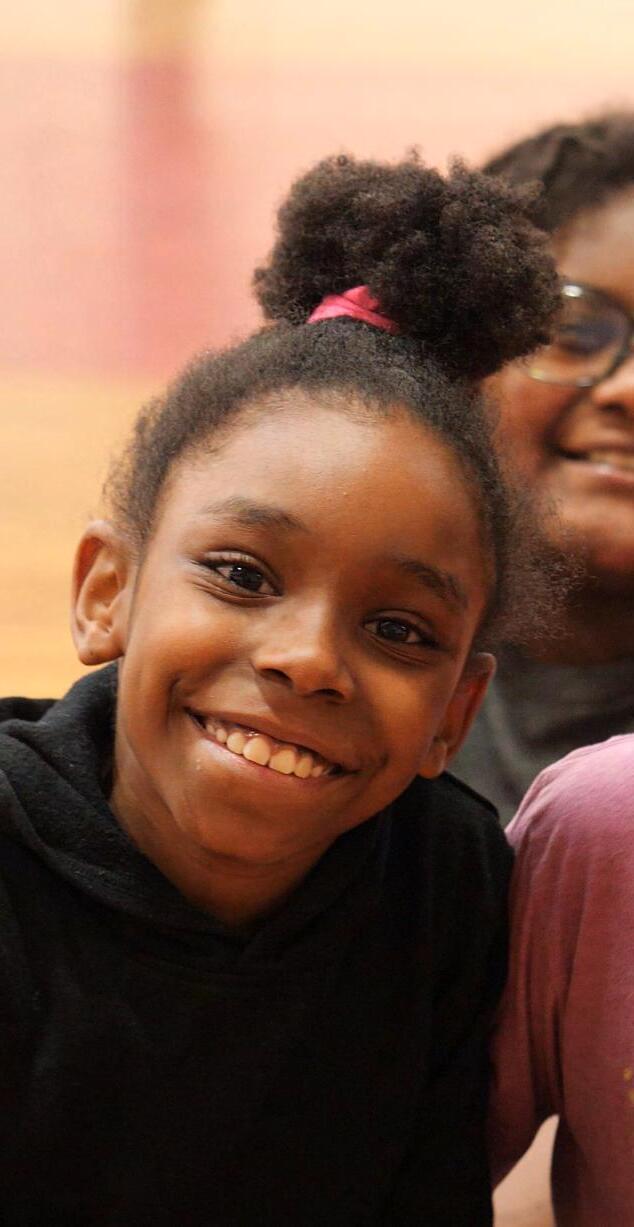
This report contains the results of LifeCity, L3C’s research into the development of the YMCA REACH Center at Winston Lake. The REACH Center is a branch of the YMCA of Northwest North Carolina association. It will be located at the site of the current Winston Lake YMCA branch – a historically disinvested YMCA branch in the region – in the East Winston neighborhood in Winston-Salem. The YMCA of Northwest North Carolina partnered with LifeCity to engage an Impact Development Strategy rooted in a collective impact framework to maximize the impact of the new YMCA branch for the local community, with particular attention focused on low-income and disinvested segments of East Winston.
As part of this strategy, LifeCity gathered quantitative data through desk research, qualitative data through interviews with local leaders and community members, and feedback from a Community Advisory Board (CAB) built to support the development of an impactful YMCA branch. This impact study supported the YMCA’s intention of creating an integrative health hub at Winston Lake while offering youth and adult programming, workforce services, and healthy food access. Additionally, this study identified the need for improved marketing and community engagement, support for transportation and greater access to YMCA programming, and an increased focus on equitable access to resources. YMCA leadership has engaged a Diversity, Equity, and Inclusion strategic plan for the branch that will be a major benefit to the success of the REACH Center in becoming a facility that is genuinely welcoming and supportive.
The YMCA REACH Center will bring transformational impact to the local community through its state-of-the-art facilities, intergenerational programming, and community partnerships. The facility will be the result of a meticulous planning process aimed at making the REACH Center unique among YMCA branches in its ability to provide access to holistic, integrative health services on-site, uniquely targeted to the particular challenges facing East Winston.
The REACH Center will function as a one-stop health hub, offering access to medical services and information on-site. The East Winston community is composed largely of people of color, who face significant health disparities in terms of life expectancy, prenatal care, cancer, and heart disease. The REACH Center will use an integrative health model that leverages research on the social determinants of health –the non-medical factors that influence health outcomes. A holistic approach to health involves a variety of factors including access to employment and housing, healthy food, financial literacy, child care, and the removal of barriers that keep people trapped in poverty. The REACH Center will be designed to increase economic mobility in East Winston – to reduce the correlation between one’s zip code of birth and one’s economic and health outcomes. Critically, the YMCA will leverage key community partners to generate these outcomes, creating a network of support in East Winston.
Funders have the unique opportunity to bolster a project that will have transformational impact on children, families, and the entire Winston-Salem community.

childcare and youth programming facilities
The YMCA of Northwest North Carolina partnered with LifeCity, L3C to deploy an impact development strategy to maximize the social outcomes of the YMCA REACH Center at Winston Lake development project. The strategy leverages a collective impact framework, which emphasizes the importance of broad, cross-sector collaboration in the form of community partnerships in creating social change.
Our Impact Development Strategy utilized a rigorous methodology aimed at identifying key areas of need in Winston-Salem, particularly in the low-income community of East Winston, and engaging community partners and resources to strategize how to best leverage the services and programming of the REACH Center to help meet those needs. Impact Development is a form of development aimed at maximizing both sustainability and equity. Leveraging key language from the leading definitions of sustainable development and equitable development, impact development aims to meet the needs of the present without compromising the ability of future generations to meet their own needs, while recognizing that this is only possible if development efforts intentionally prioritize the needs of underserved communities through policies and programs that reduce disparities while fostering places that are healthy and vibrant.
On behalf of the YMCA of Northwest North Carolina, LifeCity researched opportunities to maximize economic and health outcomes using an Impact Development model centered on social determinants of health. LifeCity conducted virtual interviews with community leaders from a variety of local institutions including government, educational institutions, industry, and workforce and health sectors. LifeCity engaged in in-person conversations with local residents, and ultimately used both inductive and deductive coding methods to produce recommendations for the YMCA. LifeCity and the YMCA convened a Community Advisory Board (CAB) designed to bring community leaders to the table to discuss outcomes for the REACH Center and the partnerships that could most effectively facilitate those outcomes. The CAB is a crucial piece of the project, as it ensures community interests will be represented, and the foundation will be laid for direct and comprehensive community engagement.
Taking into consideration the findings of LifeCity and the CAB, the YMCA has become equipped with the necessary data and support to maximize the social equity opportunities of this project and create significant collective impact through the YMCA REACH Center at Winston Lake.
The YMCA of Northwest North Carolina partnered with LifeCity, L3C to engage an Impact Development Strategy to maximize the YMCA REACH Center at Winston Lake’s ability to meet community needs, particularly around integrative health, youth and adult programming, and workforce development. This strategy involved quantitative analysis of key metrics, interviews with key stakeholders and community members, and engagement with a Community Advisory Board of local leaders. Ultimately, this process resulted in multiple reports and a video designed to enable the YMCA to maximize collective impact throughout the development of the REACH Center.
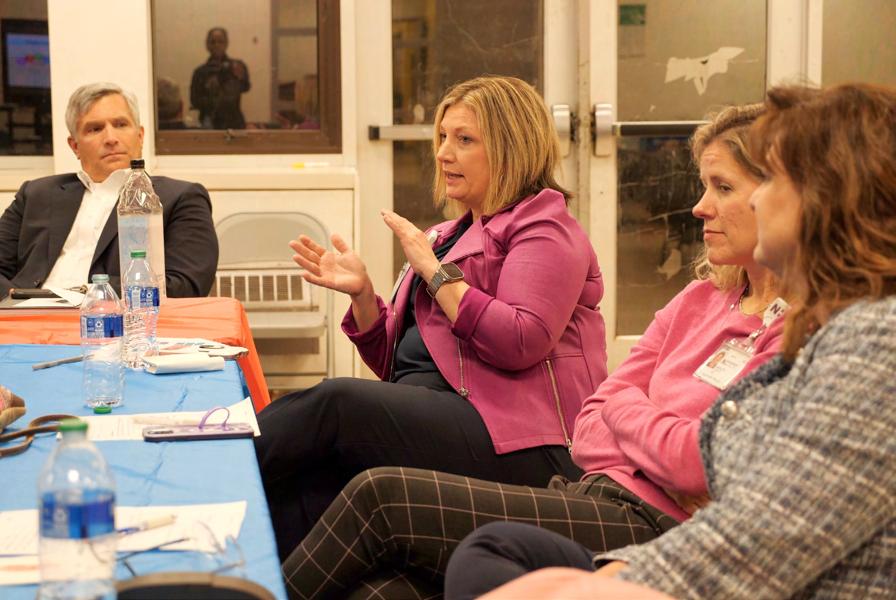
Winston-Salem is a city of roughly 250,000 located in Forsyth County in northwest North Carolina. The city is one of the largest in North Carolina and is widely known for being the headquarters of the R.J. Reynolds Tobacco Company. Winston-Salem is historically associated with the tobacco and textile industries. Recent years have seen a major boom in various technology related fields, evidenced by the city’s Innovation Quarter located adjacent to downtown. The city is home to six postsecondary educational institutions including Wake Forest University. The growth of the technology industry has brought an increase in quality of living to Winston-Salem. The city was ranked as the 41st best city to live in the US on US News & World Report’s most recent list.
In spite of increasing prosperity, Winston-Salem faces issues of inequity that leave swaths of the community unable to benefit from the growth that has benefited much of the population. While downtown and the Innovation Quarter boom, the community of East Winston remains impacted by decades of disinvestment, and Winston-Salem remains one of the least economically mobile communities in the United States. Highway 52, which runs north and south and divides East Winston from downtown WinstonSalem, serves as a stark dividing line between a city on the rise and a community that can feel forgotten.

According to Zip Atlas, East Winston (dark blue zip codes) has a poverty rate more than double the average poverty rate of the areas west of Highway 52 (light blue zip codes).
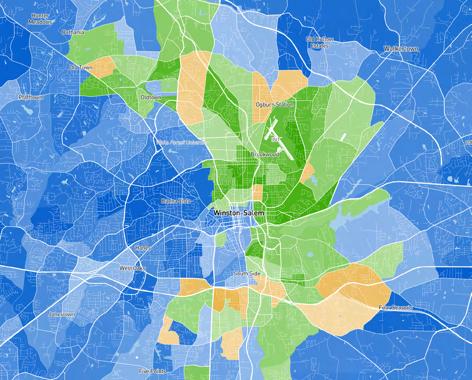
Disparities fall along racial lines in Winston-Salem, with East Winston being a predominantly African American community. The YMCA is located in the heart of East Winston, making it an excellent location to help address these socioeconomic inequities.
East Winston, a region comprising several neighborhoods east of Highway 52, is an area suffering from high poverty rates and a general lack of resources. The community has seen significant health challenges stemming from the COVID-19 pandemic due to its status as a food desert and a healthcare desert. The six census tracts surrounding the REACH Center are home to nearly 19,000 residents, 35% of whom are living in poverty, a rate that increases to 53% for children. The median family income (MFI) in the area is 41.37% of the Forsyth County MFI and 32.5% of the North Carolina statewide MFI. This economic distress is concentrated among people of color; while 52.9% of Winston-Salem residents are white, only 10% of East Winston residents are white, while 75% are African American and 12% identify as Hispanic. In Winston-Salem, African American residents are three times more likely, and Hispanic and Latino residents are four times more likely, to be living in poverty than their white counterparts. A quarter of adults over 25 in the area have not completed high school, and nearly 40% are not in the labor force.
The REACH Center is a unique opportunity to redress the resource inequity that has locked East Winston into a pattern of disinvestment while other parts of the city thrive. The project will provide access to health and educational resources that directly combat the forces that prevent progress in East Winston.
The six-census tract area in East Winston being served by the REACH Center exhibits signs of severe economic distress, with 35% of the population living in poverty, a figure which rises to 53% for children. The median family income in this area is 32.5% of the statewide MFI. Both the poverty rate and MFI indicate severe distress across this area. Inequality is an additional challenge, with African American residents three times more likely, and Hispanic and Latino residents four times more likely, to live in poverty than their white counterparts. The specific census tract in which the REACH Center will be located has distress criteria slightly less severe than the wider region, but the tract remains severely distressed.


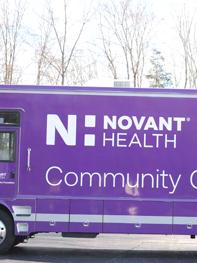
• Partnership with Novant Health will ensure quality health care for East Winston residents
• Services will include primary care, support for chronic illness, health education, and healthy food access

• Programs and services will be offered in partnership with community agencies
• Social determinants of health approach will address racial health and financial disparities
• Inclusive language utilized in all programming and marketing

• Multipurpose classrooms
• Updated childcare facilities
• New wellness center with state-of-the-art equipment and group exercise room
The YMCA of Northwest North Carolina is seeking funding to support a major renovation to create the YMCA REACH Center at Winston Lake. The REACH Center will be a state-of-the-art facility serving a disinvested population in a severely distressed area of East Winston. The REACH Center will be unique among YMCA branches by functioning as an integrative health hub modeled off of the social determinants of health. The renovation will alleviate a variety of maintenance challenges throughout the current Winston Lake branch. The REACH Center will have upgraded infrastructure that will eliminate the operational inefficiencies that have led to substandard conditions in portions of the building.
The City-County Planning Board of Forsyth County and Winston-Salem’s most recent East-Northeast Area Plan Update identifies improving community facilities and transportation as major goals for a section of Winston-Salem that includes East Winston and the location of the REACH Center. The facility will provide access to resources that are desperately needed in East Winston, all on-site at a single location, lowering barriers to access for the large segment of East Winston residents with limited access to transportation. The YMCA has engaged the city of Winston-Salem about placing a bus stop on site at the REACH Center, which would further alleviate transportation barriers and make services more accessible.
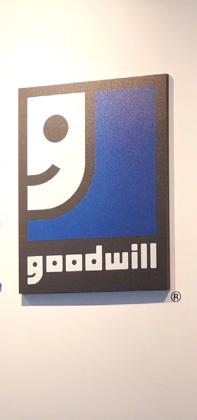
• On-site workforce and adult education courses will help residents access stable employment and increase financial literacy
• Youth programming will be designed to support young residents while allowing adults to establish and pursue professional goals
The strength of the REACH Center will be in its community partnerships. The YMCA recognizes that uplifting a community and reversing decades of disinvestment requires investment across a broad network of community actors. Partnerships with organizations including Novant Health, Goodwill Industries of Northwest North Carolina, Forsyth Technical Community College, and others will allow the YMCA to leverage local leaders and experts in providing the most comprehensive suite of programming to the community. The YMCA’s Diversity, Equity, and Inclusion Strategic Plan will help to ensure these partnerships and services are accessible to everyone.
The YMCA’s collective impact approach has positioned the REACH Center to be the community hub at the heart of East Winston’s revitalization. With this development, we believe more investment will follow. By engaging an impact development strategy and utilizing feedback from community members and leaders, the REACH Center will be able to provide responsive support for decades to come.
East Winston life expectancy is 75.8 years compared to 81 years in Forsyth County
Census tract is a Healthcare Provider Shortage Area (HPSA) YMCA’s partnership with Novant Health onsite will increase access to healthcare resources
The REACH Center represents an opportunity to create a holistic, integrative health system located directly in East Winston. Through its partnership with Novant Health, the REACH Center will be able to leverage the capacity and expertise of a major health system to support the East Winston population while alleviating barriers to access including affordability and transportation. By fostering a more physically healthy population in East Winston, the REACH Center will help set residents up for success in other aspects of life including employment, education, and financial health.
The REACH Center is located in East Winston, an area that experiences significant health disparities relative to the greater Winston-Salem area. According to Novant Health, residents of East Winston’s life expectancy is over 5 years shorter than other sections of Forsyth County. Part of the challenge is that the REACH Center will be located in a federally designated Healthcare Provider Shortage Area, which makes it difficult for local residents to access necessary care for acute or chronic health challenges. The East Winston area also faces significant challenges related to transportation, making it difficult for residents to access care regardless of insurance coverage or affordability. Forsyth County, like much of the US, experiences racial disparities in areas including life expectancy, access to prenatal care, cancer, and heart disease. Given the demographics in East Winston, these trends reveal the need for greater healthcare access in the region and intentional effort to address the social determinants of health within the community.
The YMCA is committed to transforming the REACH Center into a centralized, integrative health hub that is affordable and accessible to the East Winston population. The YMCA has an existing partnership with Novant Health, which will expand with the development of this project. Novant currently deploys its mobile health cruiser to the Winston Lake YMCA branch one day per week; in the REACH Center, Novant will have permanent space inside the building to provide healthcare access to residents daily. The fulltime presence of Novant will make primary care, chronic disease support, and health education more accessible while reducing the transportation burden that impacts so much of the East Winston population.

of East Winston youth live in poverty
REACH Center will provide quality, structured out-ofschool programming for 1,040 youth in the first year
Childcare will be offered alongside adult education programming, allowing adults to take advantage of workforce resources

As a disinvested community, East Winston lacks structured engagement for youth of all ages. This creates numerous challenges – parents with no access to childcare and teens with limited access to programming that can keep them engaged and away from risky or dangerous activities. Over half of the youth population in East Winston is living in poverty, and many struggle with transportation. As a result, access to quality programming in other parts of the city may be inaccessible. For parents, lack of access to childcare can make quality employment and financial stability nearly impossible. For children, structured programming offers the opportunity to engage physically and socially, which benefits health outcomes.
The REACH Center can provide a safe and engaging space for youth of all ages to participate in a range of activities including recreational and educational programming, and it can also serve as a primary location for youth in the community to access healthcare resources. The CAB emphasized the importance of not only providing a safe space for youth to spend time, but a space in which youth could experience social cohesion and community-building through structured and engaging programming. Specific recommendations for youth programming from the CAB and community respondents included sports, tech programming including robotics and coding, literacy programming, and on-site guidance counselors to provide college and career advice. The YMCA can engage local partners including Forsyth Technical Community College to provide comprehensive and impactful programming. The CAB also identified opportunities for social services to be accessible on-site to provide support for families. With 53% of East Winston’s youth population living in poverty, a centralized location with quality programming for all ages can function as a stabilizing intergenerational pillar of the community.
The YMCA’s mission involves enabling individuals to grow into their full potential, and this begins with child care. The YMCA is committed to making the REACH Center a safe and supportive space for youth and families to socialize, participate in programming, and access valuable services. The YMCA will provide out-of-school programming for youth of all ages, with a goal of serving 1,040 youth across all programs during the REACH Center’s first year of operations. The REACH Center will seek partnerships with school and social service organizations to maximize access and outcomes for the local youth population.

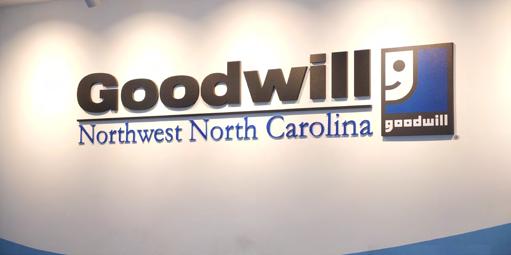
The REACH Center’s census tract’s unemployment rate is 102% higher than the national average, an indication of severe economic distress. Access to quality employment and financial stability are major indicators in the social determinants of health model – lack of access increases the likelihood of housing and food insecurity and a variety of negative health outcomes. Winston-Salem –particularly East Winston – is one of the least economically mobile areas, and has one of the highest eviction rates, in the United States.
Through partnerships with community organizations, the REACH Center has the opportunity to be at the heart of an economic transformation in East Winston. A variety of workforce training for all ages arose during the CAB meeting, including digital literacy training, tutoring, high school equivalency courses, and financial literacy programming. The YMCA has engaged multiple workforce and financial health partners including Goodwill Industries of Northwest North Carolina, Financial Pathways of the Piedmont, and Forsyth Technical Community College to create a suite of financial health programming that will support East Winston residents in their effort to gain quality employment and pursue upward economic mobility.
The REACH Center is aiming to create not only healthy individuals, but a healthy environment in which all individuals can thrive. To this end, the YMCA has engaged in partnerships with a variety of organizations with missions related to workforce training, job recruitment, and financial literacy, with a stated goal of providing training to 120 adults during the first year that the REACH Center is operational. These resources will be available at the REACH Center, reducing transportation burdens, and ensuring that these vital services will be accessible to populations from the disinvested area. Additionally, the REACH Center’s child care offerings will support adult education and workforce training, as child care will be offered on-site during relevant workforce programming. Through its partnerships with educational institutions, the REACH Center will provide education to youth and adults on alternative career pathways, supporting the financial goals of the whole community.
To ensure that our workforce development programs are inclusive, the YMCA will hire a Spanish-speaking individual at the front desk and conduct special outreach programs through the Hispanic League of Winston-Salem. Employment opportunities and programmatic events will also be listed in Spanish.
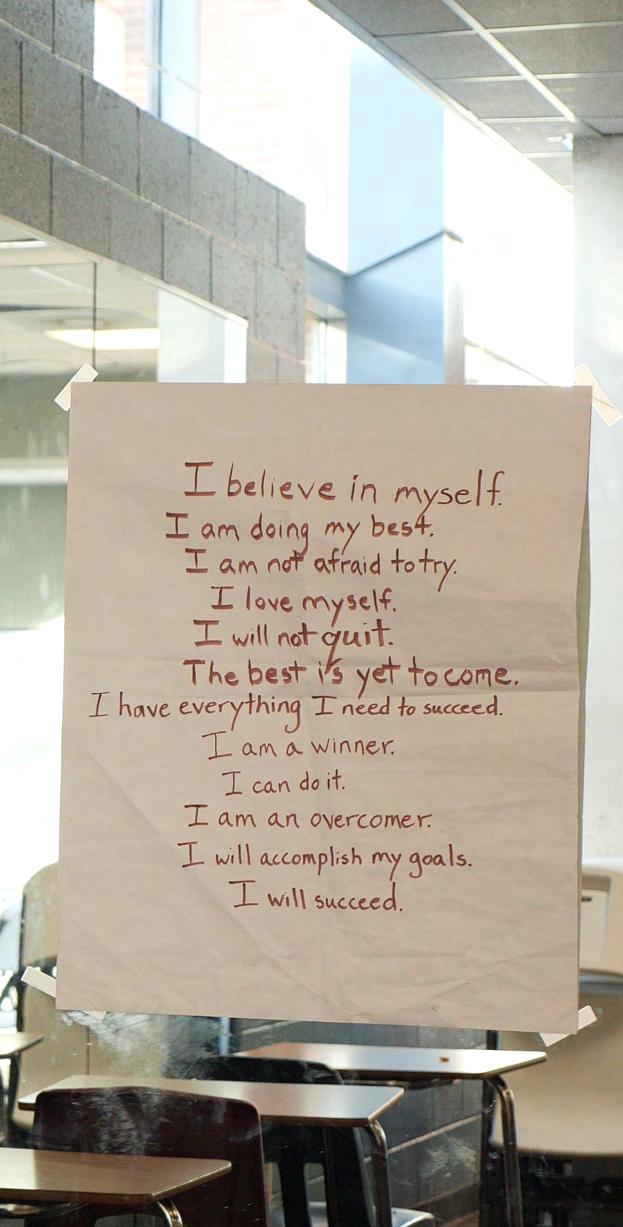
East Winston is a food desert, lacking access to affordable, healthy food
REACH Center will partner with local food bank organizations to provide healthy and affordable food on-site YMCA will aim to provide 12,000 meals during the REACH Center’s first year
East Winston is a food desert, meaning that residents’ access to affordable, healthy food is restricted or nonexistent due to the absence of grocery stores within convenient traveling distance. This lack of healthy food access compounds the health issues impacting the region, preventing residents from accessing the nutrition that would support healthy lives. East Winston’s lack of food security is a direct result of historic disinvestment in the region and represents a significant environmental justice challenge for the community. Nearly half of African American residents in Winston-Salem have low or no access to healthy food.

As an integrative health hub, the REACH Center can provide healthy food access and nutritional support for residents with limited access. Healthy food access is a critical component of the social determinants of health, and the REACH Center can support better life outcomes and increased economic mobility by supporting the nutritional health of residents. During the CAB meeting, participants identified key opportunities including a community garden, extended food pantry hours on-site, nutrition and cooking classes, and food services for the local unhoused population. The YMCA can partner with Second Harvest Food Bank and Novant Health to ensure that healthy food access, educational programming, and nutrition support are available for families and individuals of all ages.
Healthy food access is a critical component of a healthy life. Through its partnerships with Novant Health and local food banks, the REACH Center will function as a food access point for food insecure residents in East Winston. The YMCA’s goal is to provide 12,000 meals in the first year after the REACH Center renovation is complete. Additionally, the REACH Center will aim to offer educational programming around food, including classes related to cooking and nutrition. The YMCA has explored opportunities around community gardening, promoting local farmers, and bringing the community together around healthy food access.

53% of children are living in poverty in East Winston
Your investment can help us change outcomes for this community. We are seeking $7.6MM to complete this transformational project in East Winston.
For information on how to fund this project, contact Donna Rodgers, Executive VP/COO/CFO of the YMCA of Northwest North Carolina, d.rodgers@ymcanwnc.orgat
To understand how the YMCA REACH Center at Winston Lake can best meet the needs of the East Winston community, the research team conducted interviews with key stakeholders and community outreach in multiple places within Winston-Salem during October and December 2023. 19 key stakeholders were interviewed virtually or in-person. Interviews lasted for 1530 minutes. Most participants were interviewed alone, but 2 interviews were conducted with two people from the same organization. These interviews focused on understanding the strengths and challenges present within the community as well as opportunities for partnerships the YMCA can explore to meet the needs of the LIC in and around East Winston. The interviews were audio recorded, and the audio files were transcribed using Otter.ai.
The team also conducted short surveys with local residents. 43 residents of Winston-Salem and neighboring communities responded to a 4-question survey. The survey asked participants to describe 3 things they like about their neighborhood, 3 things they would change, how the YMCA could best serve their community, and whether there are any particular organizations with whom they recommend the REACH Center partner. All surveys were conducted in-person at the following locations in Winston-Salem:
• Forsyth County Public Library Carver School Road Branch
• Food Lion North Side Patterson
• Winston Lake Park
• Community Care Center
• Compare Foods East Winston Shopping Center
• USPS Main Office Survey responses were coded using Microsoft Excel. Inductive
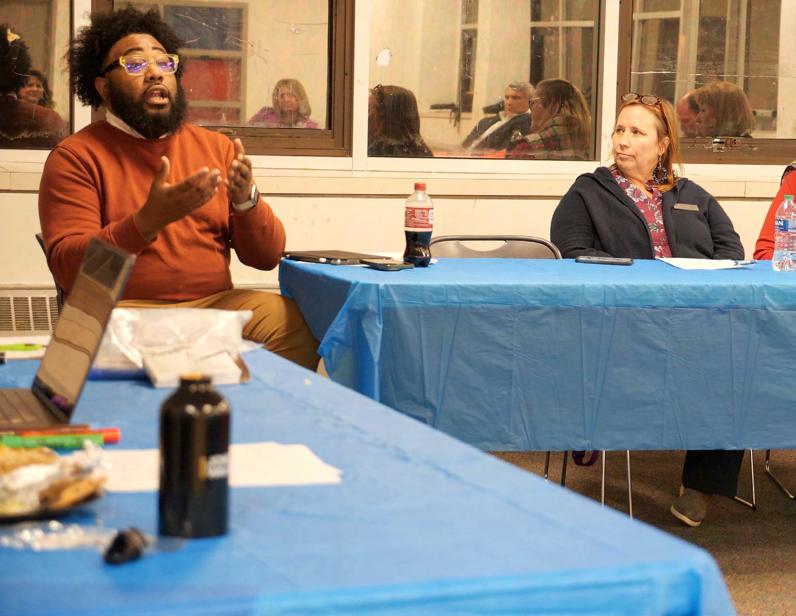

codes included: Outreach/Engagement, Youth Programming, Adult Education, Healthcare, Healthy Food Access, and Transportation. The data was further analyzed to identify emergent themes within these codes.
Prior to its second visit to Winston-Salem, LifeCity and the YMCA of Northwest North Carolina team collaborated on a list of local leaders to invite to a Community Advisory Board (CAB) meeting. Invitations were distributed and the meeting was held on December 6, 2023. The CAB meeting included a facilitated discussion about community needs, opportunities for the REACH Center to meet those needs, and how to create partnerships that would help the YMCA maximize its impact through a collective impact approach. The notes and findings from the CAB meeting were presented to the YMCA of Northwest North Carolina in LifeCity’s Low-Income Community Engagement report during December 2023.
Using data from desk research, interviews, community outreach, the CAB meeting, and YMCA feedback, LifeCity produced this report which summarizes the outcomes of the YMCA of Northwest North Carolina’s Impact Development Strategy and plans for the YMCA REACH Center at Winston Lake.
Note that the methodology of this report aligns with NMTC Allocation Application Section B, Community Outcomes: Question 27, Community Accountability and Involvement.
The following key stakeholders were interviewed virtually or in-person as part of the impact study:
• Pamela Blackstock, United Methodist Pastor
• Scott Andree Bowen, Regional Partnership Manager, Second Harvest Food Bank
• Phyllis Caldwell-George, President and CEO, Financial Pathways of the Piedmont
• Deon Carter, Vice President of Mission Advancement, Goodwill Industries of Northwest North Carolina
• Mittie Glymph Cooke, Winston Lake YMCA Member
• Stewart Winston Cooke, Winston Lake YMCA Member
• Susan Frye, Retired Clerk of Forsyth County Court
• Ellen Gallimore High School Equivalency Coordinator, Forsyth Technical Community College
• Darryl Head, CEO, YMCA of Northwest North Carolina
• Yutsil Hernandez, Winston Lake YMCA Board Member
• Bobby Kimbrough, Sheriff, Forsyth County
• Barbara Maida-Stolle, President and CEO, Goodwill Industries of Northwest North Carolina
• Kim McClure, Vice President of Youth Development, Aquatics, and Winston Lake REACH Center, YMCA of Northwest North Carolina
• Joyce Mounce, Senior Director of Market Institutes for Community Health and Wellness, Novant Health
• Dr. Ashley Perrott, Senior Physician Executive, Novant Health
• Ken Pettigrew, Executive Director, Winston Lake YMCA
• Latoya Robinson, Executive Director, Neighbors for Better Neighborhoods
• Donna Rodgers, Executive VP, COO, CFO, YMCA of Northwest North Carolina
• Shannon Stanley, Director of College and Career Readiness, Forsyth Technical Community College
Additionally, 43 local residents were anonymously interviewed for their feedback on the REACH Center by a research team during October 2023. These interviews occurred in-person.
• 2021 Forsyth County Community Health Assessment (CHA) Report.
• 2022 Forsyth County, NC State of the County Health (SOTCH) Report.
• Best Places to Live in the US in 2023-2024. US News & World Report.
• Cummer, et al. 2021. What a City Eats: Examining Dietary Preferences of Families Living in Communities at High Risk for Food Insecurity. Journal of Clinical and Translational Science.
• CDFI Fund NMTC Public Viewer Mapping Tool.
• East-Northeast Area Plan Update 2016. City-County Planning Board of Forsyth County and Winston-Salem, North Carolina.
• Food Deserts. Food Empowerment Project.
• Kania and Kramer, 2011. Stanford Social Innovation Review.
• Novant Health Kernersville Medical Center. Community Health Needs Assessment, Forsyth County North Carolina 2019-2021.
• Report of the World Commission on Environment Development: Our Common Future.
• Stephens, 2020. Redlining and Racism – the Real Roots of Food Deserts in Our Communities. Wake Forest University Office of Sustainability.
• Technology and High Growth Entrepreneurship. Winston Salem, NC.
• The Lending Hole at the Bottom of the Homeownership Market. New America.
• United States Environmental Protection Agency.
• US Census QuickFacts: Forsyth County, NC.
• US Census QuickFacts: North Carolina.
• US Health Resources and Services Administration.
• World Health Organization. Health Topics: Social Determinants of Health.
